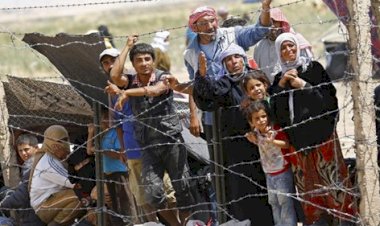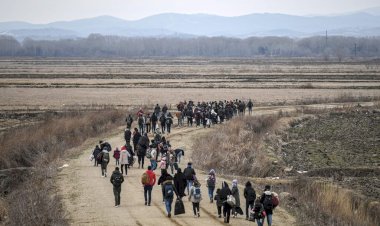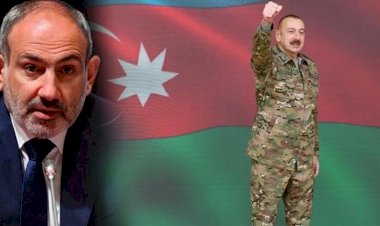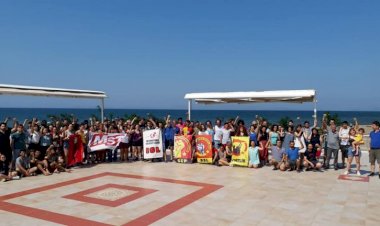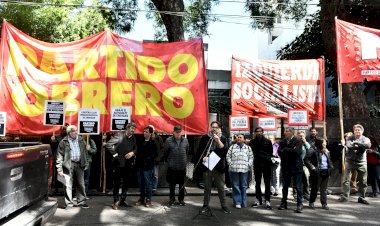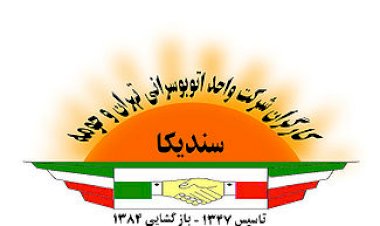Life Stopped in Greece: Workers are determined to get their rights
Tarik Hasan
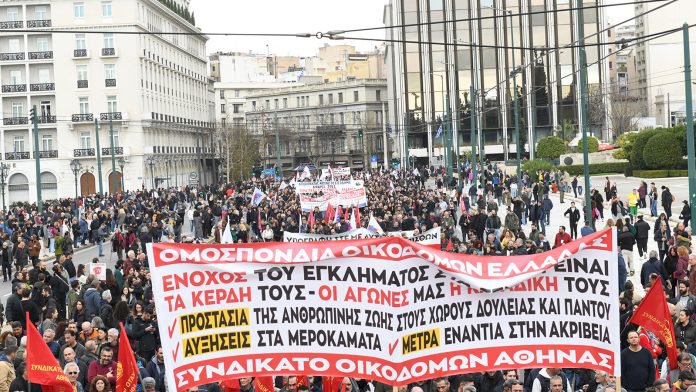
Thousands of workers, students and retirees marched in central Athens on Wednesday, rallying against rising living costs, inadequate minimum wage increases and the privatization of education.
As a result of the call made by the Greek Trade Union Confederation (GSEE) and the Workers' Centers and Struggle Workers' Front (PAME), a 1-day general strike took place across the country. From press workers to metal workers; Tens of thousands of workers in many sectors, from taxi drivers to dock workers, participated in the strike.
The increase in the unemployment rate also constitutes one of the main sources of social anger in Greece. The unemployment rate in Greece rose to 11% in February 2024, reaching the highest level since August 2023. While the number of unemployed people increased by 18.7 thousand compared to the previous month, reaching 524.4 thousand, the number of employed people decreased by 38.7 thousand, falling to 4.228 million. At the same time, the number of people under 75 who are out of the labor force, that is, neither working nor looking for work, increased by 17.6 thousand to 3.034 million.
On a monthly basis, consumer prices recorded the sharpest increase in the last six months with 1.5% in March, following the 0.1% increase in February. While housing prices are definitely on the rise, clothing and shoes (February-1.3%, March-5.8%), healthcare services (3.5% vs. 4.4%) and transportation (0.6%) The rapid increase in prices (2% on the other hand) makes life unbearable for workers.
The monthly gross minimum wage was increased by 6.4% to 830 euros this month. But many workers say wage increases are not enough to keep up with high food prices and rising rents, and wages in Greece still lag behind their European counterparts. The average monthly salary of €175 is 20% lower than 15 years ago. At the same time, the unemployment rate, which is over 10%, is the second highest in the European Union after Spain. The unemployment rate of young people is over 20%.
The government of conservative prime minister Kyriakos Mitsotakis, who won elections last June, has promised to raise the monthly minimum wage to 950 euros by 2027, when its term ends, and to increase the average wage by more than 25% to 1,500 euros in the same period.
GSEE demands an immediate increase in the minimum wage to 908 Euros, in line with current inflation, and the reinstatement of collective bargaining agreements that were abolished during the crisis.
While Syriza, the lifesaver of the international capital and the Greek bourgeoisie in times of crisis, says that the crisis is over, Prime Minister Mitsotakis also makes statements that it is time for investment and growth. “Growth shouldn't be just for a handful of people.” GSEE Public Relations Secretary Dimitris Karageorgopoulos continued: "The high cost of living is a noose around the necks of workers and retirees."
GSEE leader Yiannis Panagopoulos said at a press conference before the strike: “During the bailouts, we were told (the measures) would only last a few years until Greece got back on its feet. That's not what's happening right now. It costs nothing to re-establish labor laws and collective and individual labor rights. And this gives us the tools to pursue fair wages.”
Dimitris Tahmadzidis, Vice President of GSEE, who started a general strike with the slogan "We want Collective Bargaining Agreements and we want it now", said in his statement: "We want the government to bring normality to the private sector and the labor market in general. In addition to our demand for the collective bargaining agreement to be implemented immediately, we also want the memorandum regulations that allow the government to unilaterally determine the minimum wage to be abolished," he said.
The revolutionary Marxist organization OKDE SPARTAKOS in Greece listed its strike demands as follows:
– Increase in wages and pensions above inflation.
– Permanent and stable employment for all; Collective labor agreements.
– Free, quality public goods (education, health, electricity and water) for all.
– Hands off our strikes, hands off unions: Dismissals should be banned.
– Nationalization of large enterprises and basic branches of production without compensation to capitalists and their operation under the control of workers.
– Not including the country in the inter-imperialist competition plans of NATO, the EU and the USA.
– Freedom for Palestine.
Today, urban and intercity transportation has been stopped. Services other than emergencies were stopped in hospitals. Ship and train services stopped. Classes were not held in many places because teachers and students also participated in the strike. Food workers, paper industry workers, book and paper workers union, textile workers, pharmaceutical factory workers, construction workers, shipyard workers, telecommunication and tourism enterprises workers also went on strike.
The Taxi Drivers' Federation also announced in its statement that they would support the strike by stopping work. Radio and television stations broadcast no news on Wednesday and internet portals did not update their websites: journalists joined the strike to protest low wages in the face of rising living costs. The Panhellenic Seafarers' Federation announced, "Due to the decision to participate in the 24-hour strike, ships will remain tied up in ports all over the country and therefore ferry services will not be available that day."
During the protests, attention was also drawn to the genocide committed by Israel in Palestine. Thousands of workers and students participated in the protests with Palestinian flags and chanted slogans "Freedom for Palestine". Abu Assam Muhammed, a member of the Palestinian Association of Greece who participated in the action, said, "Today, on the occasion of the general strike of the Greek unions, which stand against the cost of living and demand an increase in salaries, we had the opportunity for Palestine to take action against the genocide committed against the Palestinian people in Gaza and to demand the solidarity of the people."
Calls for May 1 were made both in meetings with workers in individual factories while organizing the strike and during protests in the squares. Mass participation is expected on May 1, with the campaign carried out around the slogans "One way to fight and resistance", "Their profit is our life", and "Neither water nor land for the murderers of the people".
While the workers of Greece display a combative attitude against capital policies, all eyes are on Turkey, which ranks fifth stage in the world misery index. The struggle against economic policies that go beyond tightening the belts of workers and strangle them in the fight against inflation is one of the most important tasks of recent times. As May 1st approaches, we need to make it a social demand to raise the minimum wage in July - which is a more important issue than field discussions - and to impose a wealth tax on super-rich capitalists who make super-profits, instead of "reducing the demand" of the working people "under the fight against inflation". The combative and persistent spirit of the Greek working class should be an inspiration to the Turkish working class.




